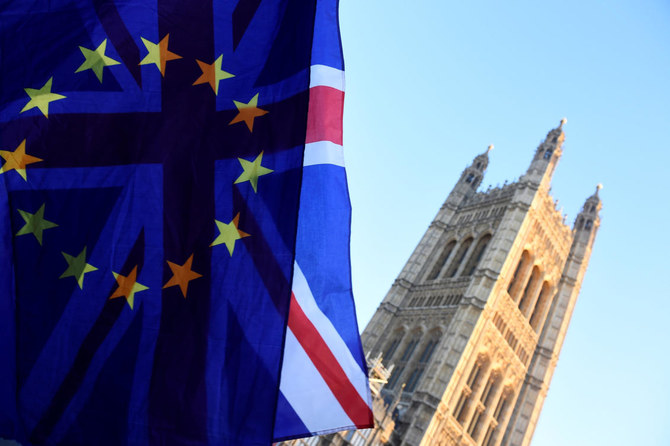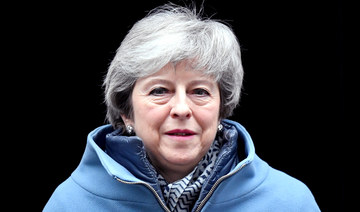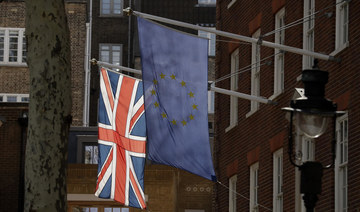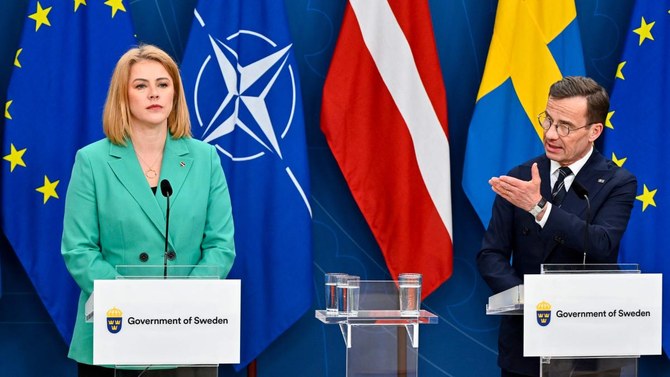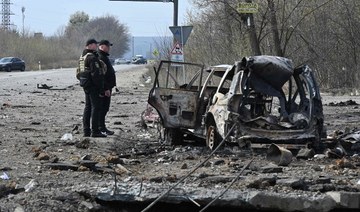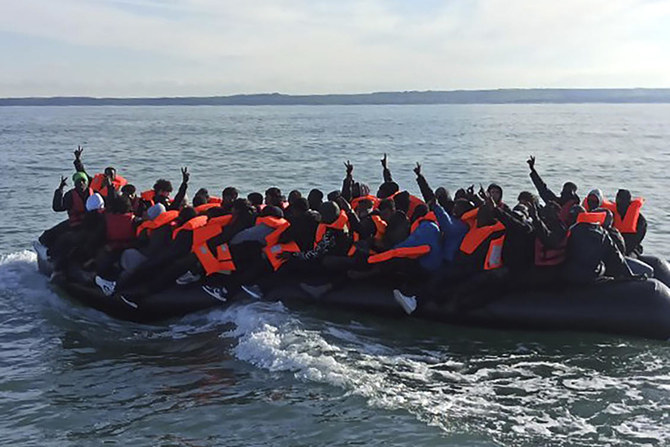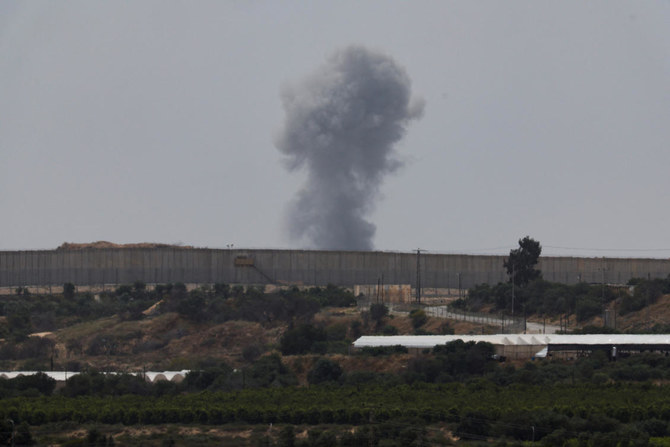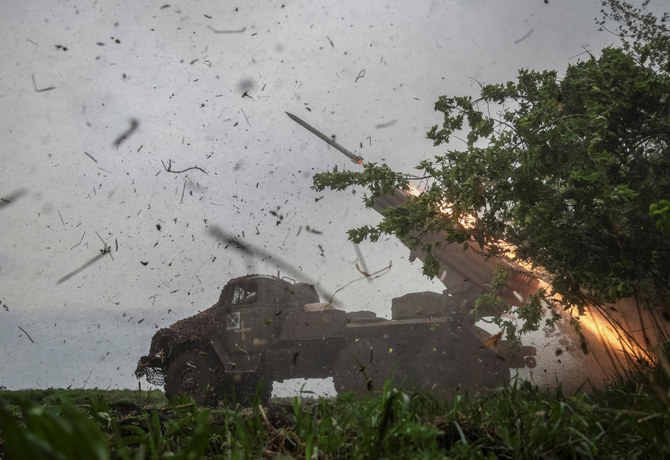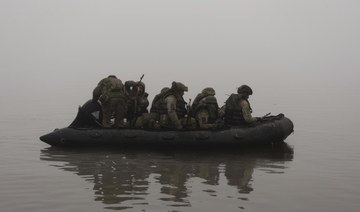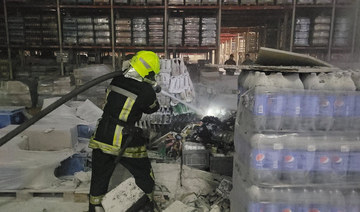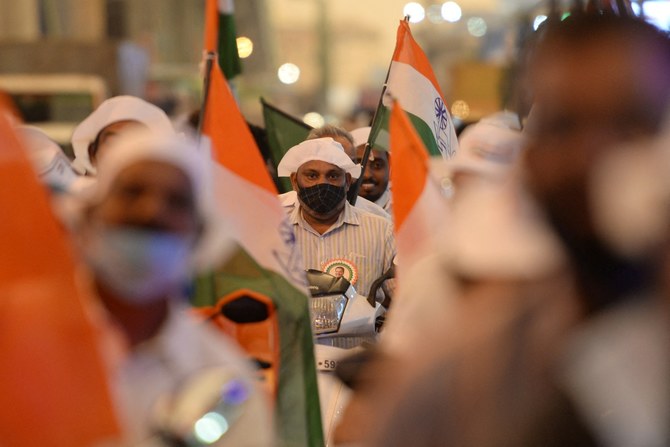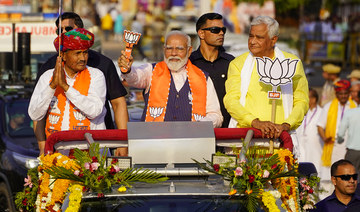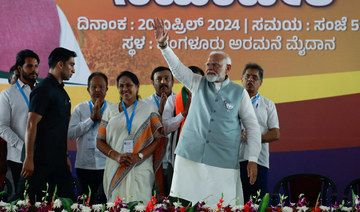LONDON: Prime Minister Theresa May requested a three-month delay to Brexit on Wednesday after her failure to get a deal ratified by parliament left the United Kingdom’s divorce from the European Union in turmoil.
Nearly three years the United Kingdom voted to leave the European Union and nine days before the formal exit deadline, British politicians are still arguing over how, when or even if the world’s fifth largest economy should leave the bloc it first joined 1973.
When May set the March 29 exit date two years ago by serving the formal Article 50 divorce papers, she declared there would be “no turning back” but parliament’s refusal to ratify the withdrawal deal she agreed with the EU has thrust her government into crisis.
Now, May has written to European Council President Donald Tusk to ask for a delay until June 30.
“As prime minister I am not prepared to delay Brexit any further than the 30th of June,” May told a rowdy session of parliament.
“I have therefore this morning written to President Tusk, the president of the European Council, informing him that the UK seeks an extension to the article 50 period until the 30th June,” she said.
She said she planned to ask parliament to vote a third time on her departure deal, which lawmakers have already voted down twice. She didn’t say when the vote would happen.
The EU could approve Britain's request for a short delay to Brexit but only if British MPs next week vote through the withdrawal deal they have twice rejected, European Council president Donald Tusk said Wednesday.
"I believe a short extension will be possible but it will be conditional on a positive vote on the withdrawal agreement in the House of Commons," Tusk told reporters, a day before leaders were to gather in Brussels for a crucial summit.
The opposition Labour Party said that by choosing a short delay May was forcing British lawmakers to decide between accepting a deal they have already rejected twice or crashing out of the European Union without a deal.
Pro-Brexit members of May’s Conservative Party are opposed to a longer delay because they fear this could mean that Brexit might never happen.
For its part, the EU said any extension should either be until May 23 or “significantly longer” and require Britain to take part in European elections in May. The prime minister said it was not in Britain’s interests to take part in European elections.
An EU Commission document seen by Reuters said the EU should offer Britain just one extension as multiple delays would leave the bloc in limbo.
Early support for May’s request for an extension came from Austrian Chancellor Sebastian Kurz and Swedish Prime Minister Stefan Lofven.
While the United Kingdom remains divided over Brexit, most agree that it will shape the economic future of generations to come and, if it goes badly, could undermine the West and threaten London’s position as the dominant global financial capital.
The loss of Britain for the EU is the biggest blow yet to more than 60 years of effort to forge European unity after two world wars, though the 27 other members of the bloc have shown surprising unity during the tortuous negotiations.
Britain’s Brexit crisis has left allies and investors puzzled by a country that for decades seemed a confident pillar of Western economic and political stability.
EU leaders are expected to discuss May’s request for a Brexit delay at a summit in Brussels on Thursday and Friday.
European Commission head Jean-Claude Juncker said the EU had done much to accommodate Britain and can go no further.
“There will be no renegotiations, no new negotiations, no additional guarantees in addition to those already given,” Juncker told Germany’s Deutschlandfunk radio. “We have intensively moved toward Britain, there can be no more.”



